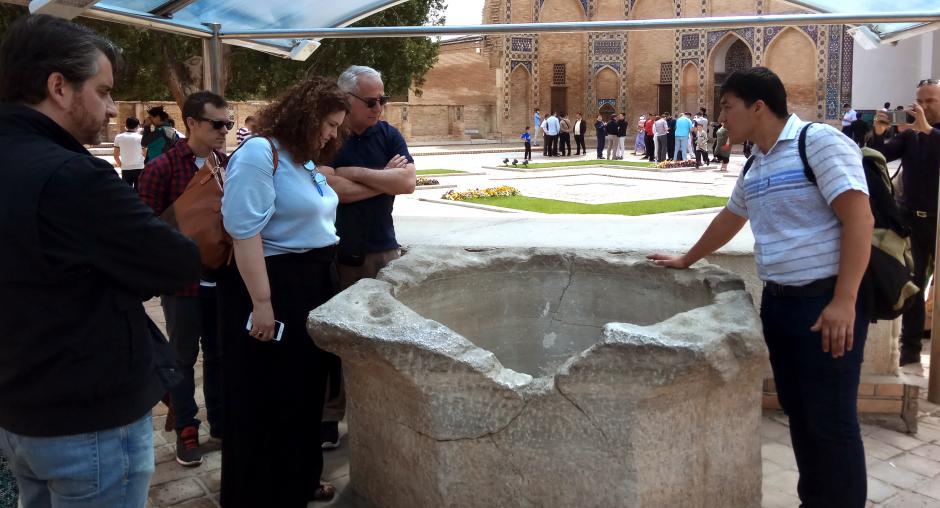Combating destruction of cultural heritage and trafficking in cultural property in Central Asian Region focus of OSCE-supported workshop in Tashkent

TASHKENT, 18 May 2018 – Practical measures to combat illicit cross-border trafficking in cultural property in the Central Asian Region was the focus of a five-day regional workshop, which concluded today in Tashkent.
Organized by the Border Security and Management Unit of the OSCE Transnational Threats Department, with the support of Italy, which is chairing the OSCE in 2018, and the OSCE Project Co-ordinator in Uzbekistan, the workshop was attended by 18 participants from relevant law enforcement services and ministries of culture of all five Central Asian participating States.
“In recent years we have experienced a dramatic upsurge in the destruction and degradation of archaeological sites and in trafficking of cultural property in the OSCE area and beyond,” said Deputy Permanent Representative of Italy to the OSCE, Luca Fratini. “It has become evident that this kind of trafficking is deeply linked to transnational organized crime and corruption networks and the financing of terrorism. Combating the destruction of cultural heritage and trafficking in cultural property is a priority of Italy which is currently chairing the OSCE”
The participants were familiarized with actual cases of trafficking in cultural property and discussed the best ways to respond to this serious transnational threat with the support of international and regional organizations.
Over the course of the workshop, experts from the Carabinieri Command for Protection of Cultural Heritage, the Federal Bureau of Investigation, the Guardia Civil, INTERPOL, the Spanish National Police as well as the Spanish Ministry of Culture and the World Customs Organization highlighted the international legal framework and best practices in criminal justice responses to trafficking in cultural property. They also spoke about how to implement best practices by respective services in the Central Asia region.
They focused on combating the trafficking of counterfeited works of arts, the role of customs agencies, techniques and best practices in trafficking in cultural property cases, available IT systems and databases in addressing illicit trafficking, international co-operation, and the return of forfeited cultural property.
Participants provided insight into their respective national legal frameworks and discussed ways forward to better address trafficking of cultural property and smuggling of antiquities.
The highlight of the workshop was a study visit to Samarkand, where participants had the opportunity to visit different archeological and cultural sights and to discuss practical measures related to their protection and co-operation between different agencies.
The project under which the workshop took place will continue in 2018 and 2019, with additional regional events in South-Eastern Europe and the Asian Partners for Co-operation.
